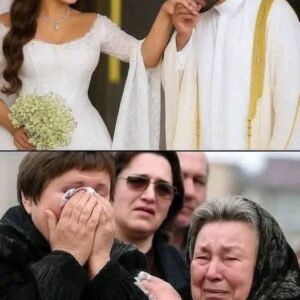The Geopolitical Fallout: What the Trump and Zelenskyy Clash Reveals
The recent confrontation between Donald Trump and Volodymyr Zelenskyy exposes far more than a tense diplomatic moment. It reflects a deeper transformation in the global balance of power and the uncertain future of Western unity. For Ukraine, the conflict is a fight for survival. For Washington, it is increasingly a question of ideology and cost. The uneasy exchange between the two leaders has peeled back the layers of political rhetoric to reveal a world order that is shifting from conviction to calculation.
A Turning Point in U.S. Policy Toward Ukraine
If the reported details of Trump’s remarks are accurate, they mark a dramatic turning point in U.S. foreign policy. His call for Ukraine to “stop where they are” represents more than strategic advice. It suggests a willingness to accept a frozen conflict, an arrangement in which fighting halts but resolution never arrives. The comparison to the Korean armistice is fitting: a tense peace, secured not by victory, but by exhaustion and compromise. For Kyiv, this would mean living beside an enemy still armed and unpunished. For Washington, it would mean withdrawing from the moral clarity that once defined its global leadership.
A Transactional Realism
Trump’s stance aligns with his long-standing philosophy of transactional realism. He views peace not as a moral crusade, but as a bargain struck between interests. It is a world view that values negotiation over ideology, cost over cause. For the United States, such an approach may appear pragmatic, a strategy to avoid endless foreign entanglements. For Ukraine, it is devastating. It implies a future where sovereignty is negotiable and sacrifice is measured in square miles.
The Return of “America First”
Trump’s reluctance to supply further weapons or missile systems reinforces the “America First” doctrine that defined his earlier presidency. It is foreign policy stripped of sentiment, guided by immediate national interest rather than global ideals. Supporters see this as realism — a long-overdue recognition that America cannot police the world. Critics see it as abandonment, a retreat that undermines the democratic alliances built after World War II. The familiar rhetoric of “defending democracy” has begun to yield to the language of budgets, supply chains, and voter fatigue.
Clashing Moral Frameworks
The divide between Zelenskyy and Trump is not only political but philosophical. Zelenskyy personifies resistance grounded in principle — the belief that freedom and justice are worth defending even when costly. Trump represents a colder calculus, one that prioritizes stability and strength over ideals. Their exchange captures a growing divide in Western politics between moral leadership and strategic restraint. The question facing the democratic world is whether it still believes in values strong enough to justify sacrifice.
Europe’s Uneasy Reaction
Across Europe, the reaction has been one of unease. European Union officials described the encounter as “alarming,” a word that reflects both anxiety and resignation. Brussels now faces the uncomfortable prospect of balancing moral duty with practical defense. Germany and France, wary of depending too heavily on Washington, are already exploring new frameworks to sustain support for Ukraine. The transatlantic bond that once felt unbreakable now shows visible strain, as Europe contemplates a future where American leadership is no longer guaranteed.
A Frozen Frontline or a Fractured Alliance
If Trump’s approach becomes official policy, it could bring an immediate reduction in bloodshed. Yet peace achieved through fatigue rather than justice may only embolden aggression. A frozen frontline could become a permanent scar across Eastern Europe, symbolizing both Western hesitation and Russian persistence. The greater danger is not merely territorial loss for Ukraine but the fracturing of an alliance system that once defined the democratic world.
The Meaning of Peace
True peace is never simply the absence of war. It is the presence of fairness, stability, and trust. When power disguises exhaustion as peace, it risks surrendering justice to expedience. The Trump–Zelenskyy clash has revealed more than differing political priorities. It has exposed the moral crossroads of an era. How this conflict concludes will shape not only Ukraine’s fate but also the world’s understanding of what peace, strength, and principle mean in the twenty-first century.



